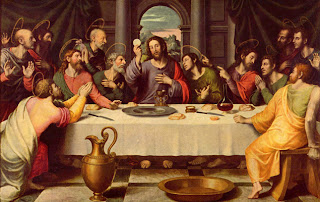A few years ago, an article appeared in a national Catholic publication entitled “Busy Altars, Empty Pews”. As the title suggests, while an increasing number of the laity have been recruited into service for a variety of liturgy-related ministries, an increasing number of the laity have been simultaneously absenting themselves from the liturgy altogether.
This wasn’t supposed to happen. The whole idea of an increased “active participation” of the laity was supposed to give the laity a greater stake in their Church, engendering increased enthusiasm and more robust liturgical participation. However, the numbers and empty pews don’t lie. A 2011 Georgetown CARA poll shows that only 22% of Americans who identify themselves as Catholics attend Mass weekly. What happened?
We’ve seen no shortage of attempts to staunch the bleeding from the pew: more relevant music, greeting ministries, friendlier homilies, more convenient Mass times, modernizations and updating of every sort, and even an altered architecture which is pushing the sanctuary ever closer to the congregation (which seems to have had the effect of pushing the people right out the back door). We even get a good lecture now and then on the importance of attending Mass and the occasional reminder that to deliberately skip Sunday Mass is a serious sin. But the numbers don’t lie. The people are leaving.
Of course there are the exceptions - certain parishes which seem to be teeming with life. But even those seem to depend on a particularly charismatic minister or two who is the engine of the whole deal. And when that person departs, the parish slumps, and we hear such things as “When Father so and so was here”, or “When Mr. what’s-his-name was around...”
On Guam, our numbers probably have not yet sunk as low as the rest of the U.S. because of what we could call “residual faith”: we are still benefitting from the deep piety and belief that saw “the greatest generation” through the ravages of World War II and the ensuing poverty and struggle.
And, so long as “grandma” is alive, we will probably still see a remnant practice of the faith. But no one has to do a poll to show that Mass attendance amongst the young is declining as rapidly as the elders are passing. So what can we do?
I suspect that many of those who no longer attend Mass no longer attend because they have never heard a convincing reason to attend. A generation or two ago, such a reason was not necessary. Today it is.
We try of course. We speak of the desirability of giving at least one hour a week to God, keeping holy the Lord’s day, praying, showing God respect, and all that. But all of those things can be done elsewhere and on one’s own. There is still no reason to go to Mass.
Sometimes we even get up the courage to remind our Mass-defecting friends and relatives that to miss Mass is a sin, a serious sin, a mortal sin - something some of us are old enough to remember hearing. But they rightly guess that we are just repeating a phrase and are not prepared to give any evidence for it. So they shrug their shoulders and walk away, and we write it off as “people nowadays”.
So what should we say? You may not find my personal reason for faithful Sunday Mass attendance in any catechism, but it is what I’ve taught my own children, so I thought I’d share. Here goes.
As we know, on the night before he died, Jesus instructed his apostles to DO THIS IN MEMORY OF ME. This is not a recommendation. This is a command. THIS is how Christ desires to be commemorated, memorialized, acknowledged, recognized, worshipped, made present, and received.
We also know that he intended this act to be repeated weekly on the day of his Resurrection because this is what we see the first Christians doing in Acts 20:7. “On the first day of the week we gathered together to break bread...”
This short phrase tells us a lot. It tells us that worship was weekly, it was on Sunday, it was corporate (“gathered”), and it was not just a prayer meeting, but the celebration of the Eucharist (“break bread”).
This is why we can not fulfill our duty to God on our own, when we feel like it, or in someplace other than the Catholic Mass. First, we must be present where the DO THIS is actually done. Second, it must be done weekly. Third, it must be done on Sunday. Fourth, it must be done in community. And the only “place” all four of these things happen is at the Catholic Mass.
But, so what if this is true? Why should I care? In Matthew 10:32, Christ tells us why we had better care, when he warns: “He who acknowledges me, I will acknowledge before my Father. He who denies me, I will deny before my Father.”
“Acknowledgement” here does not mean some casual recognition of an historical figure. It means publicly acknowledging that Jesus Christ is God. And we do that by participating in the DO THIS, by being where Christ, in the person of the priest, turns bread and wine into his Body, Blood, Soul, and Divinity: the Catholic Mass.
To not DO THIS, to ignore his command, to not attend Mass, is to deny him. And this is why the Church has always taught that to deliberately and consciously not DO THIS, to not worship him as instructed, to not attend Mass, is a mortal sin. And to die in a state of unrepentant mortal sin means an eternity in Hell.
And while we can all hope that one day our attendance at Mass will be motivated by something greater than the fear of Hell, we can at least start there. See you on Sunday.

